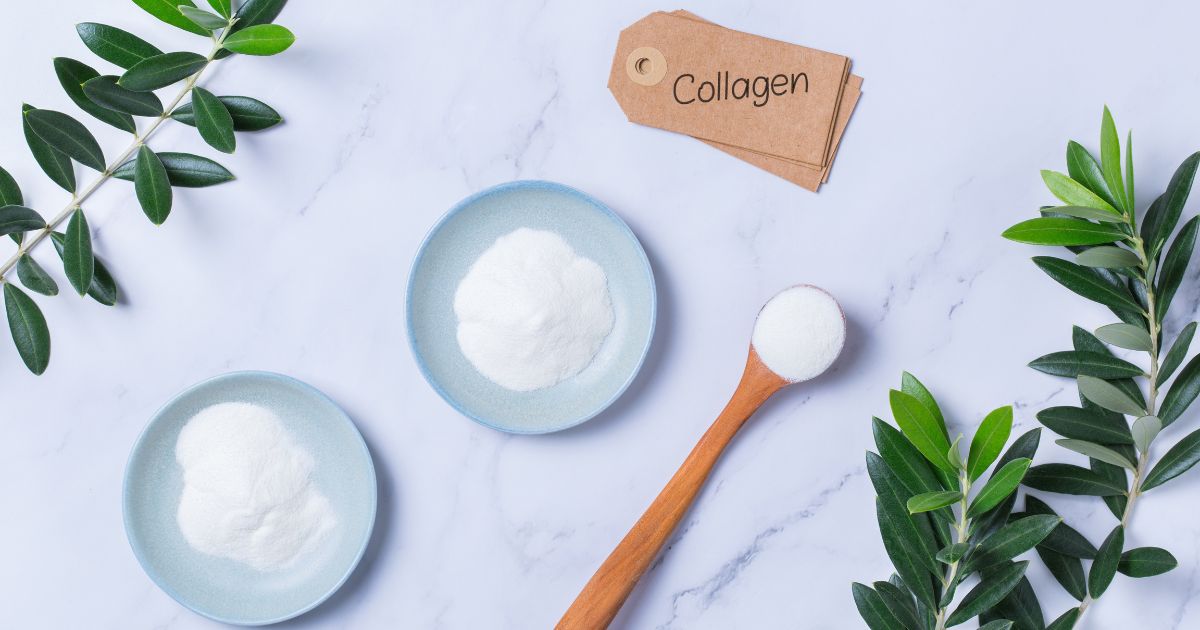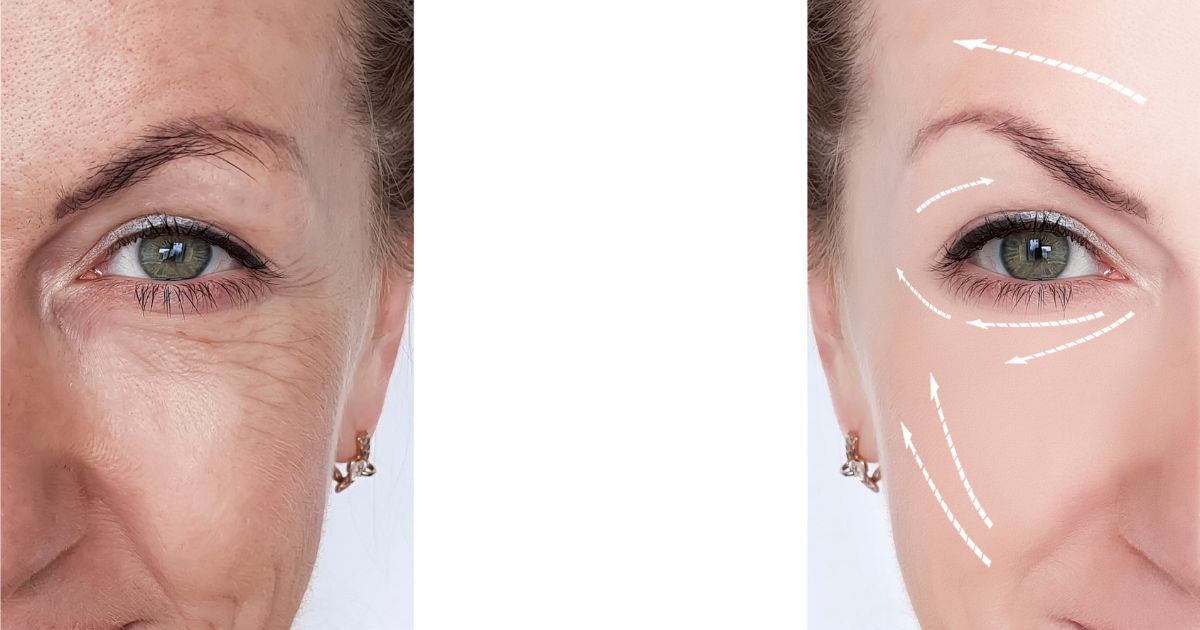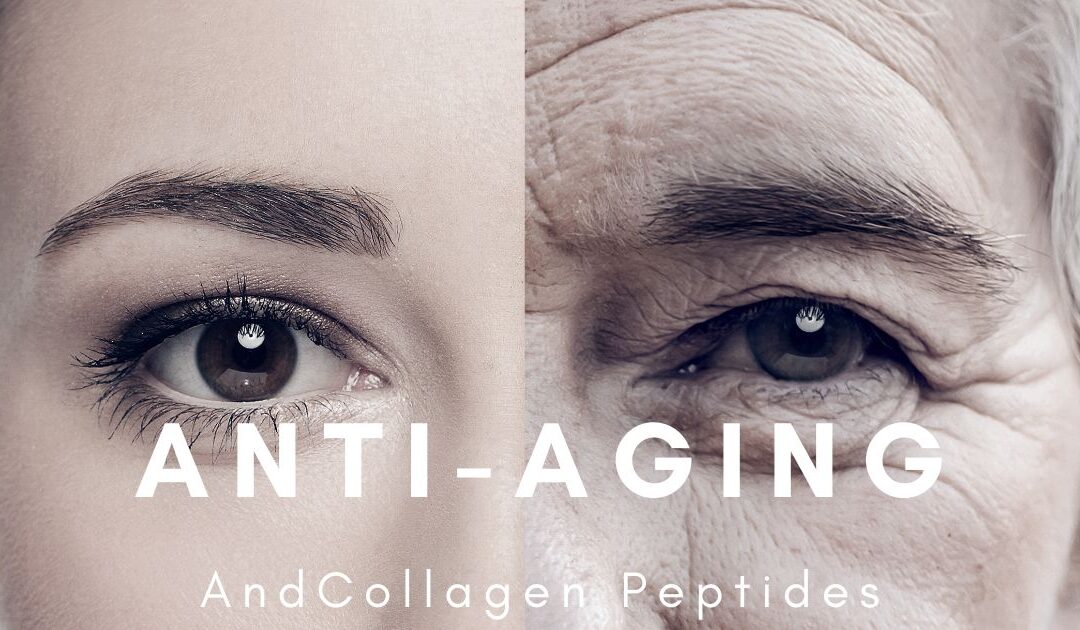Age-Defying Elixir: The Magic Of Collagen Peptides
The Wonder Of Collagen
Bountiful in our youthful years, collagen provides structural support to our skin and gives it a smooth, plump appearance. It’s akin to a tight weave in a brand-new carpet, providing a solid and firm foundation. It helps maintain skin elasticity and “liveliness.”
Often described as the body’s “binding agent,” collagen is found throughout the human framework. Its intricate, thread-like structure weaves together connective tissues with strength, resilience, and elasticity, much like a structural adhesive.1
This remarkable matrix can be found throughout the body: in the skin, tendons, ligaments, bones, muscles, blood vessels, and even the corneal structure of the eye.2
Introduction To Collagen Peptides
Collagen peptides, aka “hydrolyzed collagen,” represent a more readily absorbed type of collagen. This is due to their smaller molecular structure. Peptides originate from collagen that’s naturally occurring in animal sources – such as bovine or marine collagen. Through a process known as hydrolysis, lengthy collagen protein chains are broken down into smaller, more manageable “peptide” fragments.3
Collagen peptides are an enticing option for those interested in harnessing the potential anti-aging advantages of collagen. And, when taken in the form of supplements, collagen peptides have no noticeable odor or flavor, which means they can be seamlessly blended with food and drink.
Unraveling The Science

How Collagen Production Changes With Age
Aging is inevitable, and with it, collagen production in the body begins to dwindle. This reduction often appears as telltale signs of aging, from the emergence of wrinkles and sagging skin to a decline in joint flexibility and bone density.4
However, this decline isn’t solely linked to the passing of years; it’s also sped up by factors like excessive sun exposure, smoking, overindulgence in alcohol, lack of sleep, or lack of physical activity.5
As the body’s collagen levels gradually decrease, the skin loses its ability to bounce back, resulting in sagging and creases. Collagen also plays a major role in retaining skin hydration, so the skin may become more prone to dryness, and it may lose its “youthful” glow.6
Decreasing collagen may also affect the body’s joints. As collagen deteriorates within the cartilage and tendons, stiffness and a decreased range of motion can make everyday activities more challenging.7
This is where it can be helpful to explore taking collagen peptide supplements.
Popular Sources Of Collagen Peptides
Collagen peptides can be sourced from a variety of animal-derived collagen types. The most common are bovine, marine, and porcine collagen.
- Bovine Collagen: Bovine collagen is sourced from cowhide and bones and is the most widely used collagen type for supplementation.
- Marine Collagen: Marine collagen is derived from fish scales and skin, and it’s a popular choice for those who prefer a fish-based source of collagen.
- Porcine Collagen: Porcine collagen is sourced from pig skin. It’s much less common than bovine and marine collagen.8

Revealing The Top-Five Potential Benefits Of Collagen Peptides
1. Help Reduce The Appearance of Fine Lines and Wrinkles
Among the most popular potential benefits of collagen peptides is their power to stimulate collagen production and help combat the visible signs of aging – wrinkles and fine lines.
Research shows that regular supplementation with collagen peptides may reduce the appearance of wrinkles and fine lines by effectively “filling in” the wrinkles for a plumper-looking appearance.9
2. Strengthen The Skin Barrier: Enhanced Elasticity And Hydration
An optimal skin barrier is crucial for skin health. It serves as a defensive shield against environmental enemies, like bacteria, UV exposure, and pollutants. Collagen peptides may play a significant role in helping to maintain this barrier.
A robust skin barrier means greater resilience against wear and tear and better skin elasticity and hydration. Roughly translated: fewer wrinkles and less sagging.10
Science backs this up. One study found that women aged 35+ who consumed 2.5 g of collagen peptides daily for 12 weeks experienced a notable boost in skin hydration and elasticity, less roughness, and increased skin density, compared to the placebo group.11
3. Support Joint Flexibility
A loss of joint flexibility is also an age-related issue. With age, joint mobility tends to decrease – largely due to a reduction in cartilage, the tissue that protects bones from rubbing against each other. The cause of decreased cartilage? Reduced collagen production in the body.
Collagen peptides, however, show promise for helping to ease this issue.
A 2019 review found evidence that collagen peptide supplements may decrease joint issues caused by “wear-and-tear” by helping to reduce joint stiffness and supporting joint flexibility. Additionally, these peptides may provide bone density support.12,13
4. Maintain Strong And Healthy Nails
The potential advantages of collagen peptides also extend to the nails, where they may play a role in maintaining strong and healthy nails.
One clinical study revealed noticeable positive effects in those who took collagen peptides for 24 weeks, with a 12% increase in nail growth rate and a 42% decrease in the frequency of nail breakage.14
In other words, having collagen peptides regularly may help contribute to stronger, healthier nails.
5. Aid Digestive Health
Digestive health may not immediately spring to mind when thinking about anti-aging, but maintaining a healthy gut is important for overall health and well-being as you age.
A study published in 2022 found that collagen peptides may help support digestive health and ease certain gastrointestinal (GI) issues, such as bloating.15
Consuming collagen peptides may contribute to a healthy gut. A healthier gut means more efficient nutrient absorption and a healthier you – and a healthier you means more glowing, vibrant-looking skin.
Collagen And Your Lifestyle
Collagen In Nature
Collagen isn’t solely a product of laboratories; it’s abundantly present in nature, primarily within animals. It’s the main component of connective tissue and can be found in bones, tendons, ligaments, and skin.
Beef, chicken, or turkey broth is often a convenient way to consume such collagen in your diet, as is fish broth, tough cuts of meat (full of connective tissue, i.e. brisket, chuck steak), and gelatin-rich foods (found in certain desserts).16-18
While incorporating these foods can help boost your collagen intake, the amount of collagen obtained from food alone may not be enough to address any major anti-aging concerns.
Supplementing with collagen peptides, in conjunction with a healthy, balanced diet, may be helpful.
Collagen Peptide Supplements And Powders
Collagen supplements deliver collagen peptides in easily ingestible forms, which may assist the body in replenishing lost collagen.
Collagen powders (or other types of supplements that include collagen peptides) are especially popular. They can easily be added to meals, smoothies, and hot or cold drinks, making collagen supplementation a breeze.
However, it’s essential to ensure the products are of high quality and from reliable sources to enjoy optimal results.

The Takeaway: Collagen Peptides And Anti-Aging
Although the human body naturally produces collagen, the production lessens with age. That’s where collagen peptides, easily digestible and absorbable forms of collagen, step in.
The potential to help support skin elasticity and hydration, reduce the appearance of fine lines and wrinkles, promote joint health, and enhance bone density and nail strength are all potential benefits of taking regular collagen peptides.
It’s no wonder why they’re often considered the “magic elixir of anti-aging.”
Should You Hop On The Collagen Train?
Given the numerous potential benefits, hopping on the collagen train may be a good idea if anti-aging skin or joint care is a priority for you.
For maximum potential benefits, combine any collagen peptide supplementation with a well-rounded lifestyle that includes a balanced diet, regular physical activity, adequate hydration, and a comprehensive skincare routine. And, always consult a medical professional before taking any new supplements.
Sources
- https://www.hsph.harvard.edu/nutritionsource/collagen/
- https://www.ncbi.nlm.nih.gov/pmc/articles/PMC6891674/
- https://parjournal.net/article/view/3863
- https://www.physio-pedia.com/Effects_of_Ageing_on_Joints
- https://www.ncbi.nlm.nih.gov/pmc/articles/PMC8620403/
- https://www.ncbi.nlm.nih.gov/pmc/articles/PMC8824545/
- https://www.ncbi.nlm.nih.gov/pmc/articles/PMC5608132/
- https://www.mdpi.com/2072-6643/11/10/2494
- https://www.tandfonline.com/doi/abs/10.1185/030079908X291967
- https://www.arthritis.org/health-wellness/treatment/complementary-therapies/supplements-and-vitamins/can-collagen-supplements-help-arthritis
- https://pubmed.ncbi.nlm.nih.gov/28786550/
- https://pubmed.ncbi.nlm.nih.gov/35639457/
- https://www.ncbi.nlm.nih.gov/pmc/articles/PMC7271718/
- https://www.ncbi.nlm.nih.gov/pmc/articles/PMC6566836/

